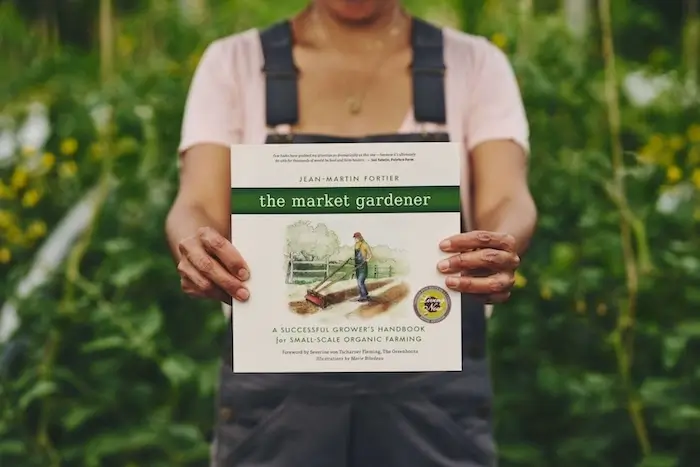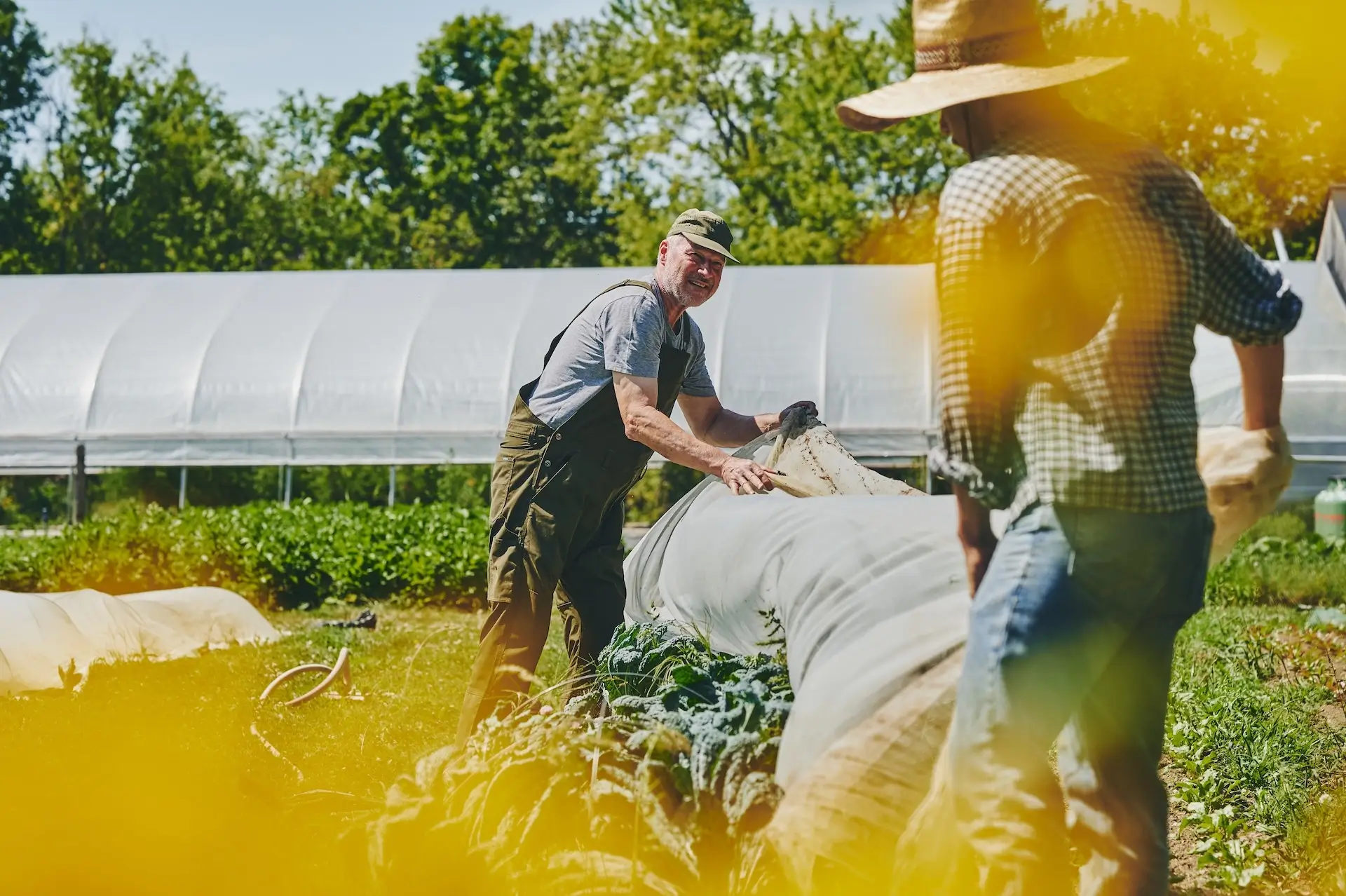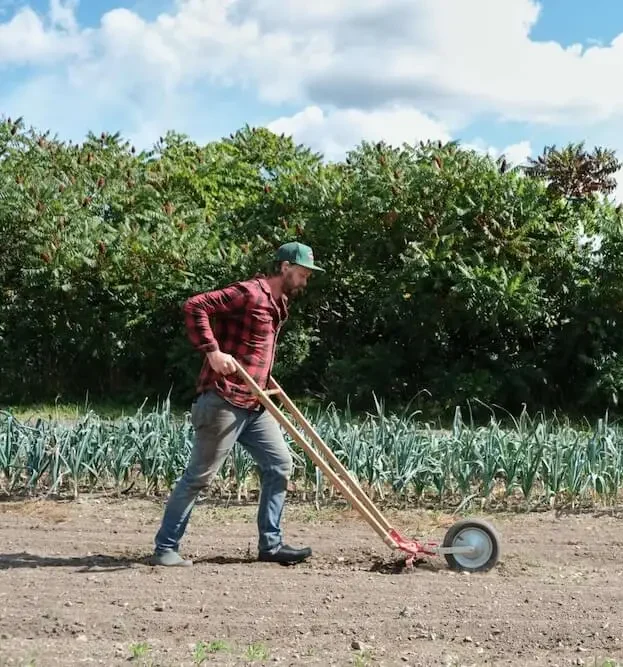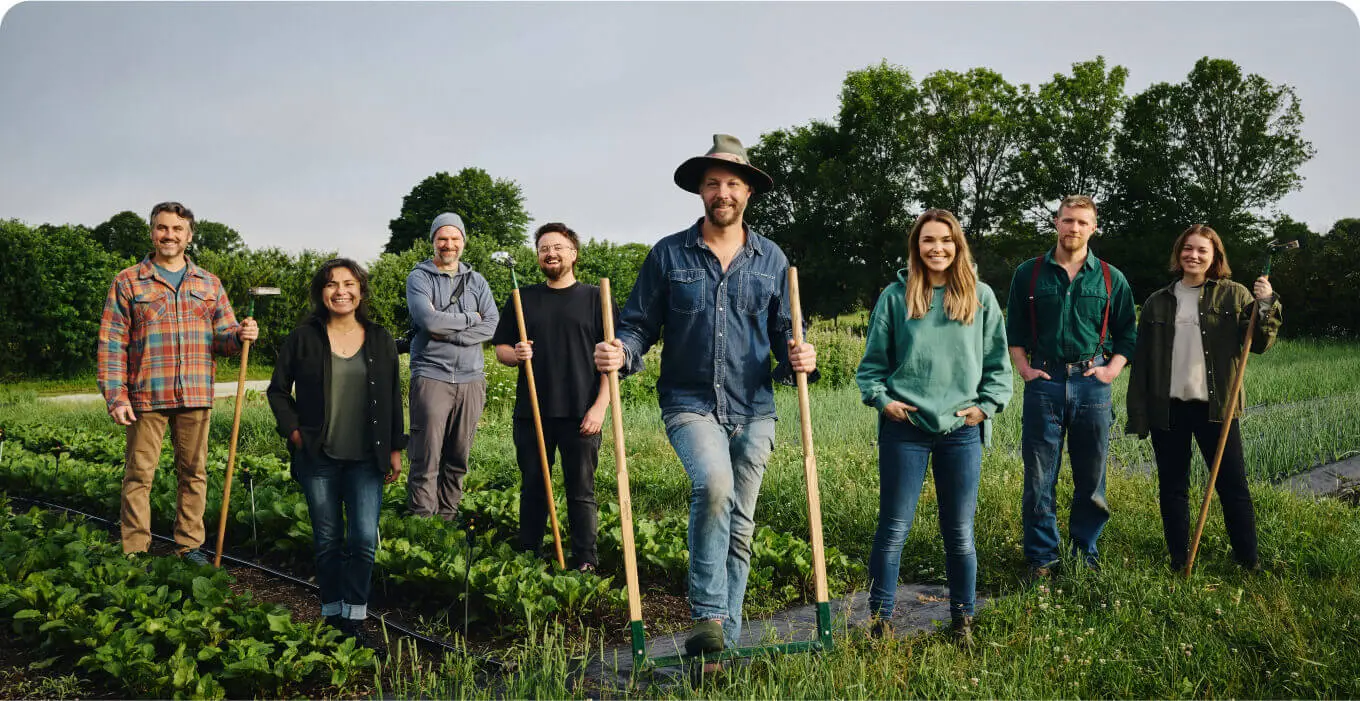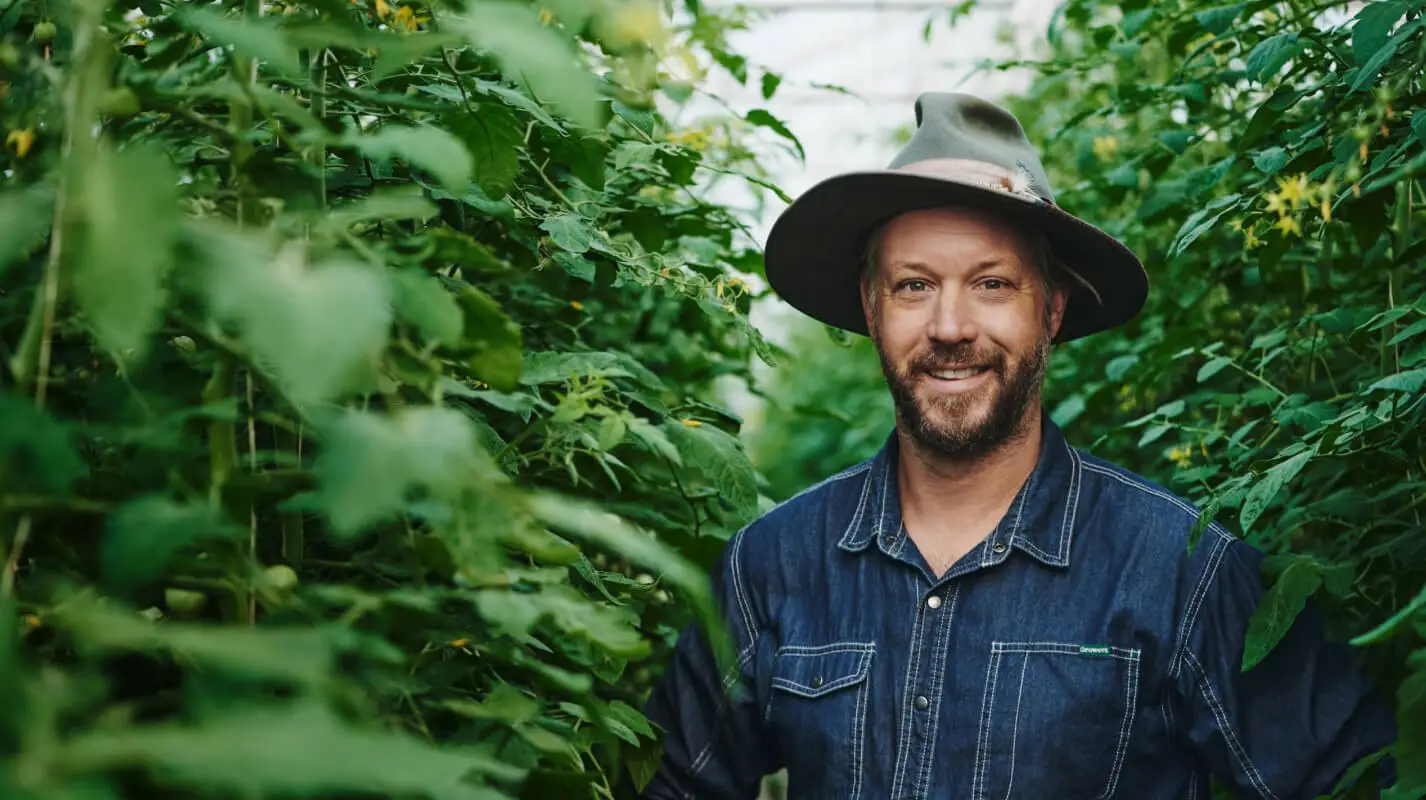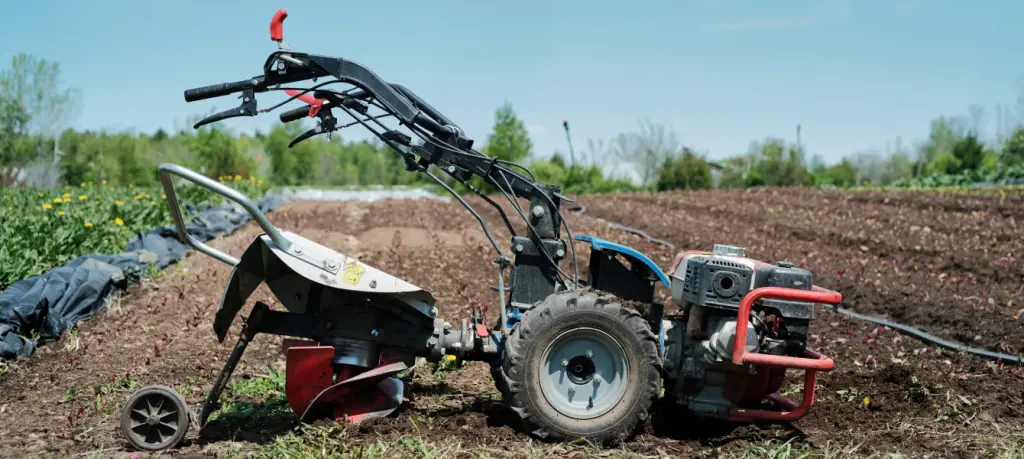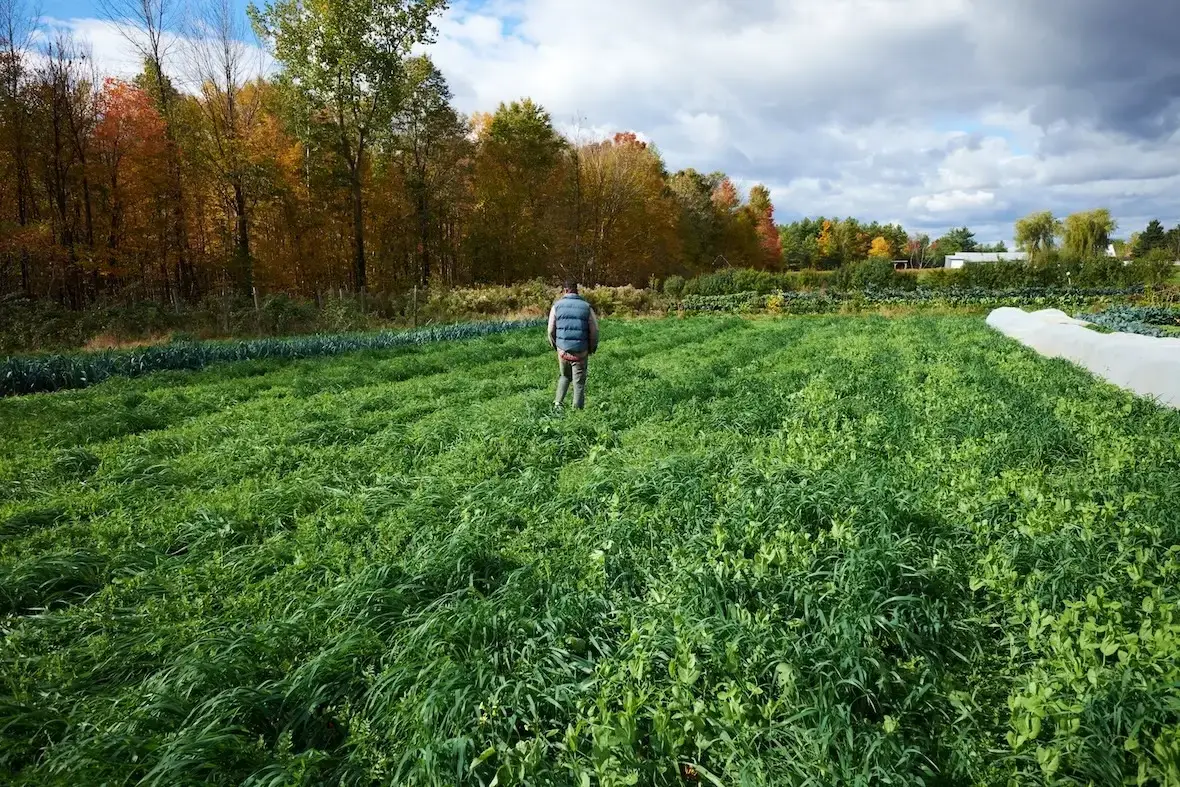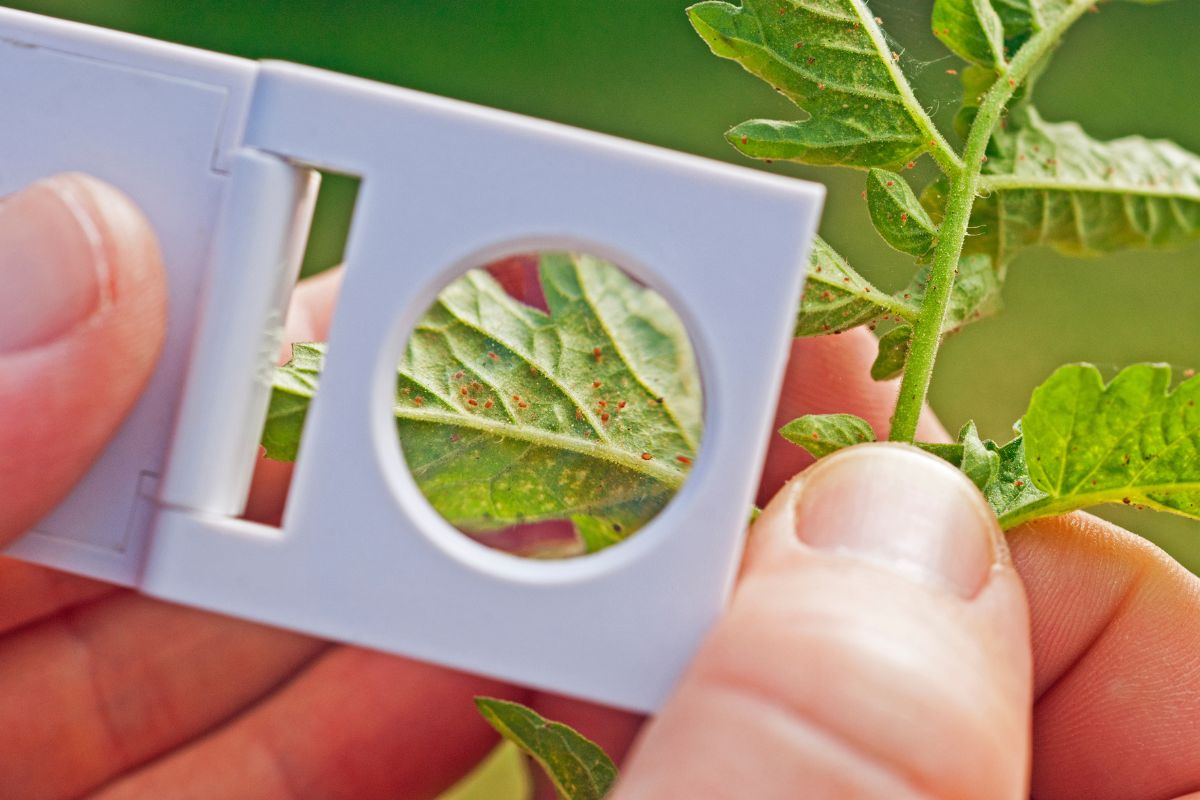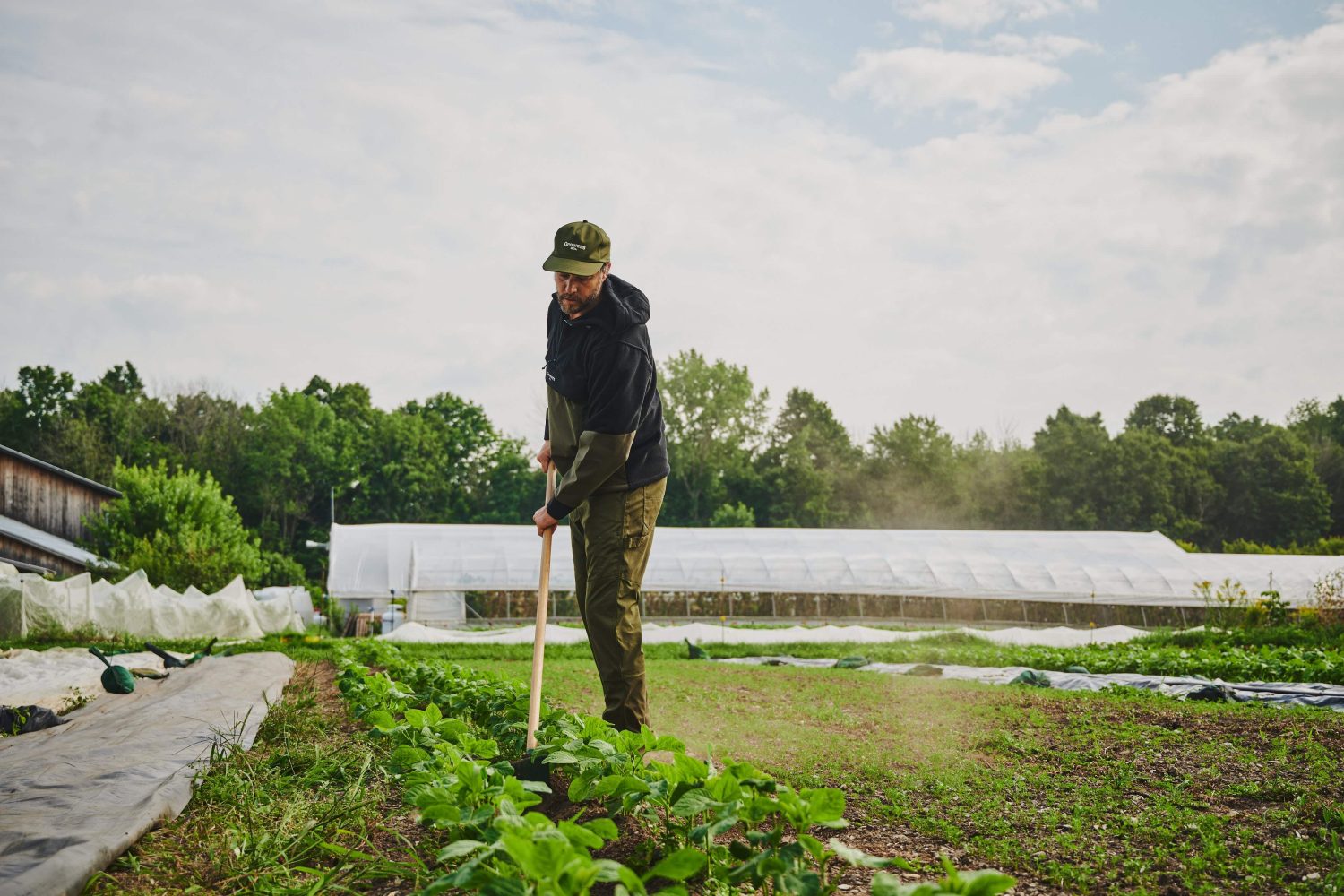Wondering about the best type of tractor for your market garden? You’ll want to find one that fits with your scale and style of vegetable production. In our experience, the best option is a hand-powered two-wheeled tractor. The most widely distributed two-wheel tractors in North America are made by the Italian company BCS. Simply put, the BCS 2-Wheeled Tractor is the swiss-army knife of small-scale farming – a must-have for any market gardener working with a minimum till system. In addition to being durable and easy to use, this walking tractor is super versatile and through its attachable components, can support an array of tasks on different types of soil.
In this post, we will provide an overview of the basics to consider when choosing a BCS tractor and its attachments. Though it’s a more significant investment, the benefits of a BCS are multifold and are sure to provide long lasting impact for small-scale farms!
What is the BCS 2-Wheeled Tractor?
The machine is powered by a Honda engine that can work with a variety of implements that can be applied to the tractor, depending on your farm’s needs and environment. Driven on foot, growers can use its two adjustable and reversible handles to maneuver the towed wheels of the tractor easily on freshly prepared beds without having to walk directly behind it.
At La Ferme des Quatre-Temps, we use the BCS America Model 853 from the Harvesters Series. This model is perfect for a vast array of tasks on a small-farm as it is tailor-made to work on a system that uses 30 inch (75 centimeters) permanent beds.
One of the reasons why Jean-Martin Fortier swears by this model is because of the long sleeves that allow good clearance between a farmer’s feet and the machine – this can make it easier to safely operate a rotary plow. Plus, most of the tractor’s attachments can support anything from breaking ground and mowing cover crops to preparing and maintaining beds. It’s certainly helpful to have something so versatile around that’s also easy to use and manage! If only more tools could be this efficient…
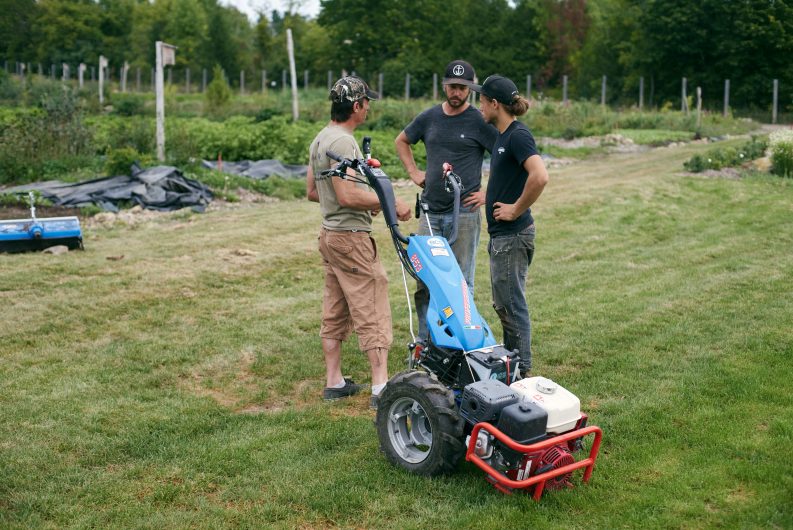
Why use a BCS on your farm?
For less than $5000 (USD), the BCS tractor offers an incredible amount of value to your farm and provides a single, powerful piece of equipment that can support numerous activities with just one power unit. Compared to a heavy regular-sized tractor, it’s lightweight and perfectly engineered to use on small-scale farming systems, without compressing the soil.
Once you have it, you can integrate its many attachments for bed preparation, green manure incorporation, and crop successions. With flair mowers, chipper/shredders, plows, ridgers, snow throwers… the list is impressive and will allow you to do a LOT! Once you have purchased a BCS for your farm, you really won’t need any other form of mechanized equipment to support bed preparation and maintenance, and that is a pretty huge benefit for a busy grower, so consider how this equipment could be applied on your farm!
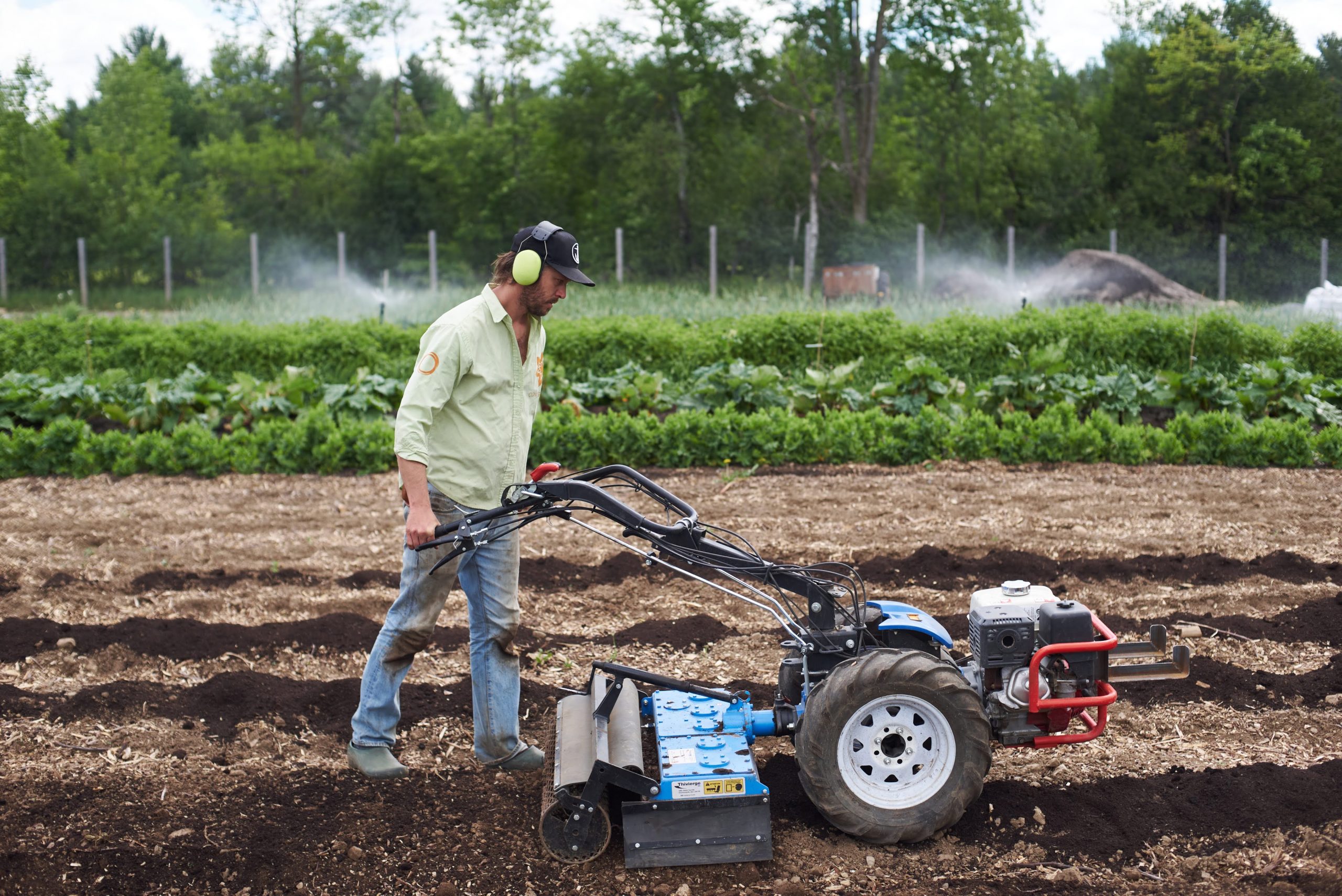
BCS 2-Wheeled Tractor Attachments
Do you need to find an easier way to incorporate amendments or to simply break ground? Before getting started with a BCS, you will need to choose the right attachments to accomodate your needs, and equip yourself with the quick hitch to easily attach and remove implements from your tractor. This hitch is a real time-saver and will allow you to easily change attachments without having to routinely switch and screw them back in.
Here are the top 4 BCS Two-Wheeled Tractor attachments that every grower needs:
- Power Harrow: Use this to integrate amendments on your bed and perfectly prepare them without disturbing your soil structure.
- Flail Mower: Use this to mow out green manure, weeds or a crop after it has been harvested.
- Rototiller: Use this on soils that are very hard to work with.
- Rotary Plow: Use this to build raised beds by passing in the aisles and to help add height to the raised beds that need it.
The full list of available attachments goes on and on, but remember to choose carefully as this will directly impact your capacity to work the soil efficiently.
If you’re curious about other useful tools for your farm, feel free to check out our annual review of 30 essential small farm equipment.

